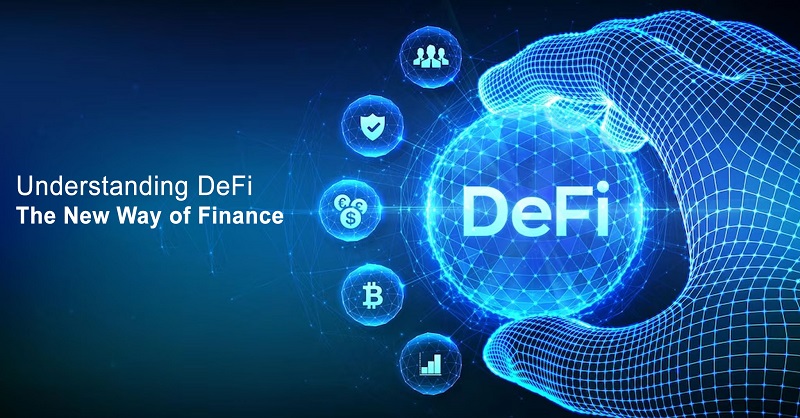Decentralized Finance (DeFi) is rapidly transforming the financial landscape, offering open, permissionless, and decentralized alternatives to traditional financial systems. Through the use of blockchain technology and smart contracts, DeFi platforms enable individuals to access a variety of financial services, including lending, borrowing, trading, and yield farming, without the need for intermediaries such as banks or brokers. However, this innovation comes with significant compliance challenges.
The decentralized nature of DeFi, where control is distributed across a network rather than centralized in a single entity, creates legal and regulatory complexities. DeFi platforms often operate in a gray area in terms of compliance, as they do not conform to traditional regulatory frameworks that apply to centralized financial institutions.
In this article, we will explore the compliance challenges faced by DeFi platforms and how they are addressing these issues.
1. Key Compliance Challenges in DeFi
1.1 Lack of Regulatory Clarity
One of the most significant challenges for DeFi platforms is the absence of clear and universally accepted regulatory frameworks. Financial regulations, such as those governing securities, commodities, money laundering, and taxation, were designed for traditional financial institutions and may not directly apply to the decentralized nature of DeFi.
Many DeFi protocols are developed without clear guidance on how existing financial regulations apply, leading to confusion over whether a DeFi protocol should be classified as a security, commodity, or something else entirely. This lack of clarity can hinder the development of DeFi platforms and prevent institutional investors from participating in the market.
1.2 Anti-Money Laundering (AML) and Know Your Customer (KYC) Regulations
DeFi’s permissionless nature allows users to participate without requiring traditional KYC or AML checks. While this makes DeFi attractive to users seeking financial privacy, it also creates significant regulatory risks. Financial authorities around the world, such as the Financial Action Task Force (FATF), require that businesses operating in the financial space implement KYC/AML procedures to prevent money laundering, terrorist financing, and fraud.
Without these protections, DeFi platforms risk becoming vehicles for illegal activities, including the laundering of proceeds from criminal enterprises. Regulators are increasingly looking to ensure that DeFi protocols comply with these rules, which present a challenge for platforms that do not have centralized entities to enforce such procedures.
1.3 Consumer Protection
DeFi platforms often lack consumer protection mechanisms, which are integral to traditional finance. In centralized systems, consumers can seek legal redress for disputes, fraud, or errors. However, in DeFi, where smart contracts are self-executing, users may find themselves exposed to risks without any recourse for protection.
The absence of protection mechanisms also makes it difficult for regulators to enforce safeguards, such as transparency in the terms of financial agreements or protections against fraud, cyberattacks, and platform failures. Users in DeFi may unknowingly engage in risky practices due to a lack of regulation or understanding of the associated risks.
1.4 Regulation of Tokens and Cryptocurrencies
Many DeFi platforms issue their own native tokens, which can be classified as securities under certain regulatory frameworks. However, the question of whether these tokens should be regulated as securities or utility tokens has not been definitively answered in many jurisdictions. Without clear regulatory guidelines, DeFi projects are often uncertain about how to comply with securities laws.
For example, in the United States, the Securities and Exchange Commission (SEC) has yet to establish a concrete framework for determining which tokens qualify as securities and which do not. If a DeFi platform’s token is classified as a security, it could trigger additional compliance requirements, such as registration and disclosure obligations.
2. How DeFi Platforms are Addressing Compliance Challenges
Despite the significant compliance challenges they face, DeFi platforms are taking proactive steps to align with existing regulations and reduce risks.
2.1 Implementing KYC/AML Procedures
To address the risk of money laundering and terrorist financing, some DeFi platforms are beginning to adopt KYC/AML procedures, albeit in a decentralized manner. These platforms are using decentralized identity solutions to verify user identities without compromising user privacy.
Some approaches to decentralized KYC/AML include:
- Zero-Knowledge Proofs (ZKPs): ZKPs allow users to prove their identity or meet certain requirements (such as age or country of residence) without revealing any personally identifiable information. This can help DeFi platforms meet regulatory expectations while maintaining user privacy.
- Third-Party KYC Providers: Some DeFi platforms partner with KYC providers to conduct identity verification, ensuring that users are not involved in illicit activities.
This method can help DeFi platforms comply with AML/KYC regulations while maintaining their decentralized nature. However, it is still a developing area, and wider adoption may require further collaboration between regulators and the DeFi community.
2.2 On-Chain Compliance
A new trend within the DeFi space is the integration of on-chain compliance mechanisms into smart contracts. Some DeFi platforms are incorporating automated compliance checks directly into their smart contracts, ensuring that users adhere to local laws and regulations before participating in certain activities.
For instance, platforms may include smart contract logic that automatically rejects transactions involving individuals or addresses that are flagged as high-risk (e.g., associated with money laundering). Additionally, platforms may integrate blockchain-based identity verification solutions, allowing users to interact with the platform only if they pass certain regulatory checks.
2.3 Collaboration with Regulators
Several prominent DeFi projects are seeking to collaborate with regulators to better understand the regulatory landscape and help shape future policies. Collaboration helps ensure that DeFi projects are not left behind as regulations evolve, while also allowing DeFi platforms to present their models to regulators in a way that fosters mutual understanding.
For example, Compound and Uniswap, two of the largest DeFi protocols, have actively engaged in discussions with U.S. regulators about how decentralized finance should be treated under existing laws. This kind of collaboration can lead to the development of clearer regulatory guidelines that benefit both the industry and consumers.
Moreover, some blockchain projects are proposing the development of a global DeFi regulatory framework that would address the unique characteristics of DeFi while maintaining appropriate safeguards for users.
2.4 Incorporating Consumer Protection Mechanisms
To mitigate risks associated with consumer protection, some DeFi platforms are adopting features commonly found in traditional finance, such as insurance protocols and dispute resolution mechanisms. These features help protect users against platform failures, smart contract bugs, and fraudulent activities.
For example, platforms like Nexus Mutual provide decentralized insurance for DeFi projects, allowing users to cover losses due to smart contract failures or protocol vulnerabilities. This approach helps users feel more secure while participating in DeFi activities, addressing one of the key concerns about the lack of consumer protection in decentralized finance.
Additionally, decentralized governance models are being introduced to allow users to vote on protocol changes, audits, and the allocation of funds. This enhances transparency and accountability, as users can directly influence the platform’s policies and dispute resolution processes.
2.5 Token Classification and Regulatory Clarity
To navigate the uncertainty surrounding the classification of tokens, some DeFi platforms are taking steps to ensure that their tokens comply with existing securities laws. By seeking legal counsel and engaging with regulators, these platforms aim to determine whether their tokens qualify as securities, utility tokens, or another classification.
For example, some platforms are structuring their tokens to fall under utility token classifications by ensuring that tokens are used primarily for access to services within the platform, rather than being seen as speculative investment vehicles. Others are working towards compliance with existing financial regulations by seeking regulatory licenses and ensuring that they meet the requirements of financial authorities.

3. The Road Ahead: The Need for Global Cooperation
3.1 Unified Global Regulations
To effectively address the compliance challenges of DeFi, the global blockchain and cryptocurrency industry must work together to create unified regulatory standards. DeFi projects operate across borders, and regulators in different jurisdictions may impose different standards. A lack of international consensus can create confusion for DeFi platforms trying to navigate conflicting regulations.
Collaborating to create common standards and regulations will help DeFi platforms grow, while providing protection for users and investors. A coordinated global approach can foster an environment where DeFi projects can innovate within the boundaries of law, minimizing risks and maximizing opportunities.
3.2 Balancing Regulation with Innovation
As DeFi continues to grow, regulators must balance compliance with the need to preserve the innovation that makes DeFi attractive. Overregulation could stifle creativity and slow down progress, while under-regulation could expose the system to misuse and fraud.
The challenge lies in creating regulatory frameworks that promote consumer protection, ensure financial stability, and protect investors while preserving the core principles of decentralization, transparency, and permissionless innovation.
4. Conclusion
DeFi has the potential to revolutionize the financial services industry by providing decentralized alternatives to traditional financial systems. However, as the industry matures, DeFi platforms must address the significant compliance challenges they face, particularly with regard to AML/KYC requirements, consumer protection, and token classifications.
Through the implementation of decentralized compliance mechanisms, collaboration with regulators, and the adoption of consumer protection features, DeFi projects are actively working towards ensuring that they remain compliant with evolving regulations. The road ahead will require continuous dialogue between the DeFi community and regulators to create clear and effective frameworks that allow for growth while ensuring the protection of users and investors.
By successfully navigating compliance challenges, DeFi can continue to unlock its transformative potential, bringing greater financial inclusion, security, and innovation to the global economy.













































